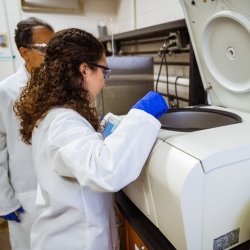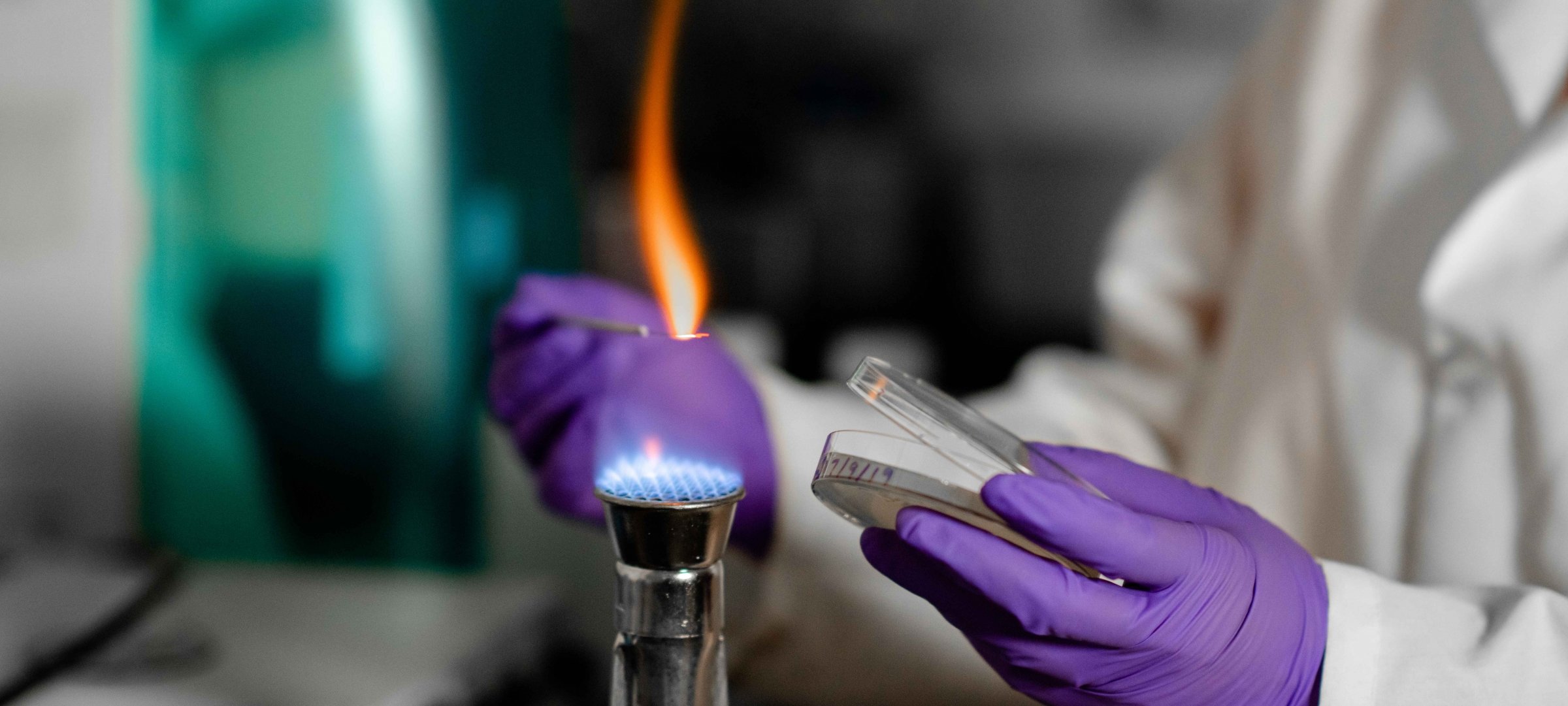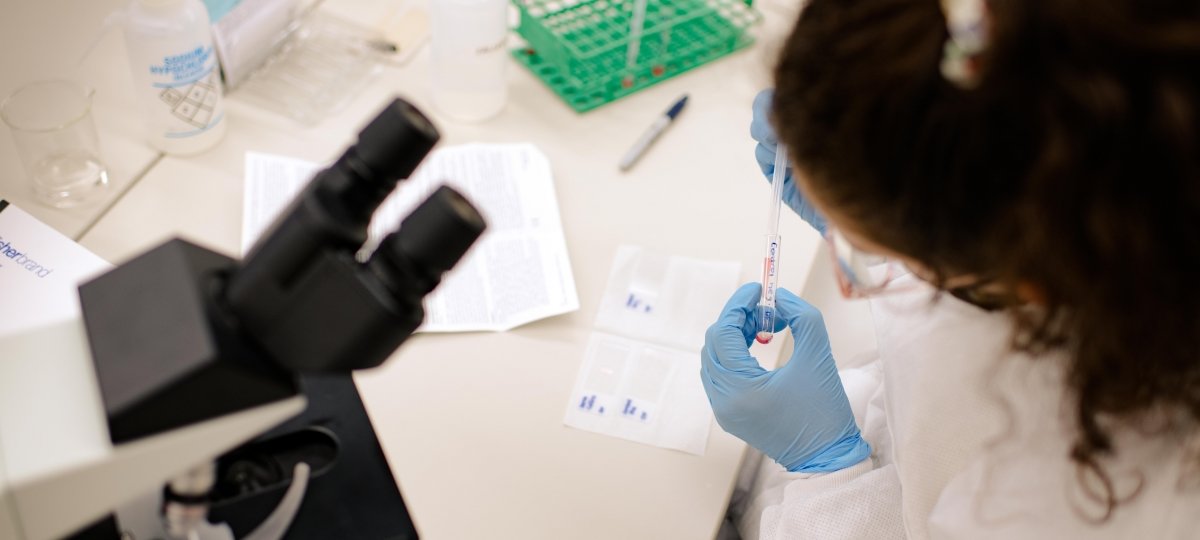Medicinal chemistry, also known as pharmaceutical chemistry, is a branch of chemistry focused on the development of new drugs and the improvement of existing ones. It is an interdisciplinary field that combines chemistry, biology, and pharmacology.
Practitioners work to design and synthesize compounds that can treat diseases, manage symptoms, and improve a patient's quality of life. They optimize the structure and properties of molecules to improve interactions with target molecules and compounds as well as their metabolism, toxicities, and drug delivery dynamics to create selective medicines with limited side effects for recipients. Medicinal chemistry is both data-driven science and an art, in which creativity and knowledge is combined to make something new.
What Does A Medicinal Chemist Do?

Medicinal chemists work to discover and develop new medications. They are scientists who specialize in designing, synthesizing, and optimizing chemical compounds to be formulated as drugs used to treat diseases and conditions, manage symptoms, and improve quality of life.
Medicinal chemists apply their chemistry, biology, and pharmacology knowledge to identify, design, synthesize, and optimize compounds with the desired properties. They seek to understand the molecular mechanisms of disease and the interaction between drugs and the body. They also use computer modeling and simulation techniques to predict the properties of potential new drugs.
Once a promising compound has been identified, medicinal chemists optimize its chemical structure to enhance potency, selectivity, and safety. They evaluate the compound's biological activity, pharmacokinetics, and toxicity to ensure that it is effective and safe for humans. They work closely with other scientists, including biologists, pharmacologists, and clinicians, to advance the drug discovery process.
Medicinal chemists also play a critical role in developing drug delivery systems. They develop formulations and delivery methods that improve the efficacy and safety of drugs. They develop drug delivery systems targeting specific tissues or cells, thereby reducing side effects and improving therapeutic outcomes.
What Skills Do Medicinal Chemists Need?
Medicinal chemists are highly skilled professionals responsible for discovering and developing new drugs and therapies. Some of the critical skills and attributes essential for success in this field include:
- Strong knowledge of chemistry: Medicinal chemists need to have a deep understanding of chemistry, including organic chemistry, biochemistry, and physical chemistry. They must be able to apply this knowledge to the design and synthesis of new drug candidates.
- Analytical and problem-solving skills: Medicinal chemists must be able to analyze complex data, identify trends and patterns, and use this information to solve problems and optimize drug candidates.
- Creativity and innovation: Discovering new drugs requires creativity and innovation. Medicinal chemists must be able to think outside the box and develop novel approaches to drug discovery and development.
- Attention to detail: Developing new drugs is a highly regulated process requiring meticulous attention. Medicinal chemists must be able to follow strict protocols and ensure that all aspects of drug development are conducted with the highest level of accuracy and precision.
- Communication skills: Medicinal chemists must communicate effectively with other scientists and stakeholders, including biologists, pharmacologists, clinicians, and regulatory agencies. They must be able to explain complex scientific concepts clearly and concisely.
- Teamwork and collaboration: Drug discovery and development are highly collaborative processes that require teamwork and collaboration across multiple disciplines. Medicinal chemists must be able to work effectively with other scientists and researchers to advance the drug discovery process.
- Adaptability and resilience: Drug discovery is a complex and challenging process that often requires medicinal chemists to adapt to changing circumstances and overcome unexpected obstacles. They must remain resilient in the face of setbacks and challenges.
What Careers are There for Medicinal Chemists?
There are many different careers for medicinal chemists. Each requires different levels of education, from a bachelor's degree to a master's or a PhD in medicinal chemistry. Your career possibilities include:
- Biostatistician
- Chemist
- Lab Technician
- Manufacturing Supervisor
- Material Scientist
- Medical Scientist
- Pharmacist
- Process Chemist
- Professor
- Quality Control Scientist
- Research Assistant/Associate
- Research Chemist
How Much Do Medicinal Chemists Earn?
Medicinal chemistry is a highly specialized and in-demand field and medicinal chemists earn above-average pay in each stage of their career.
|
Figures from payscale.com, accessed April 2025. Figures from U.S. Bureau of Labor Statistics (BLS), dated May 2024. |
|||
| Job | Mean Entry Level Salary (Payscale) | Mean Annual Salary (BLS) | Top 10 Percent (BLS) |
|---|---|---|---|
| Medical Scientist | $77,166 | $111,430 | $167,600 |
| Pharmacist | $104,579 | $137,210 | $172,040 |
Medicinal chemists work in several different settings including academia, government research institutions, biotechnology, and pharmaceutical industries. As a result, salaries can vary widely depending on the institution, position, and experience level.
What is the Outlook for Medicinal Chemistry?
The job outlook for medicinal chemistry is promising. The drug discovery market is expected to grow at a CAGR (Compound Annual Growth Rate) of 6.49 percent during the forecast period from 2024 to 2033, according to Nova One Advisor. Driving the near-term growth is development of compounds to combat COVID-19. Research teams around the globe have identified drugs for the treatment of COVID-19 by screening both novel and existing drugs for their ability to alleviate symptoms and stop viral replication. Beyond the COVID-19 pandemic, investments are centering on gene and cell therapies for both COVID-19 diseases and other novel diseases.
Additional factors driving growth include:
- Growing prevalence of chronic diseases including cancer, as well as kidney and cardiovascular disease, the latter of which is the leading cause of death and disability globally according to the World Health Organization (WHO). All are complicated, costly, and burdensome to treat.
- Expiring patents of blockbuster drugs—highly successful and in-demand medications that generate annual sales of more than $1 billion.
- Successful streamlining that reduces the costs of clinical trials, allowing more investment into more drugs.
- Increasing government grants for drug research and development, especially in the United States.
- Surging use of advanced technologies (e.g. artificial intelligence, high-throughput process development, bioinformatics, and combinatorial chemistry) to improve the identification of drug candidates.
The biologics drug segment is expected to lead growth. Biotech firms are exploring the potential of these highly effective treatments resulting in fewer side effects. Biologics may be able to cure diseases rather than just treat the symptoms. If successful, the demand for these treatments is certain to increase.
What Types of Things Will I Study in Medicinal Chemistry?
Medicinal chemistry is a highly specialized field that requires a deep understanding of chemistry, biology, and pharmacology. Medicinal chemistry students study a range of subjects that will provide them with the knowledge and skills needed to discover and develop new drugs and therapies. The following are some of the typical subjects studied in medicinal chemistry programs:
- Organic Chemistry: Medicinal chemists must have a strong foundation in organic chemistry, including the structure and reactivity of organic compounds and synthetic methods to design and synthesize new molecules.
- Biochemistry: Biochemistry studies the chemical processes that occur within living organisms. Medicinal chemistry students learn the biochemical processes underlying disease and how drugs interact with biological systems.
- Pharmacology: Pharmacology is the study of the effects of drugs on biological systems. Medicinal chemistry students study how drugs interact with specific molecular targets in the body and the principles of drug action and metabolism.
- Drug Design and Synthesis: The discovery and development of new drugs require the ability to design and synthesize new molecules that are effective and safe. Medicinal chemistry students learn the principles of drug design and the techniques used to synthesize new drug candidates.
- Analytical Chemistry: Analytical chemistry studies the methods used to analyze chemical substances. Medicinal chemistry students learn the principles of analytical chemistry and the techniques used to analyze and characterize new drug candidates.
- Pharmaceutical Formulation: Pharmaceutical formulation is essential for designing and manufacturing drug products. Medicinal chemistry students study the principles of pharmaceutical formulation and the techniques used to develop and manufacture new drug products.
- Regulatory Affairs: Regulatory affairs ensure that new drugs meet the regulatory requirements of government agencies such as the FDA. Medicinal chemistry students learn the principles of regulatory affairs and the requirements for developing and approving new drugs.

